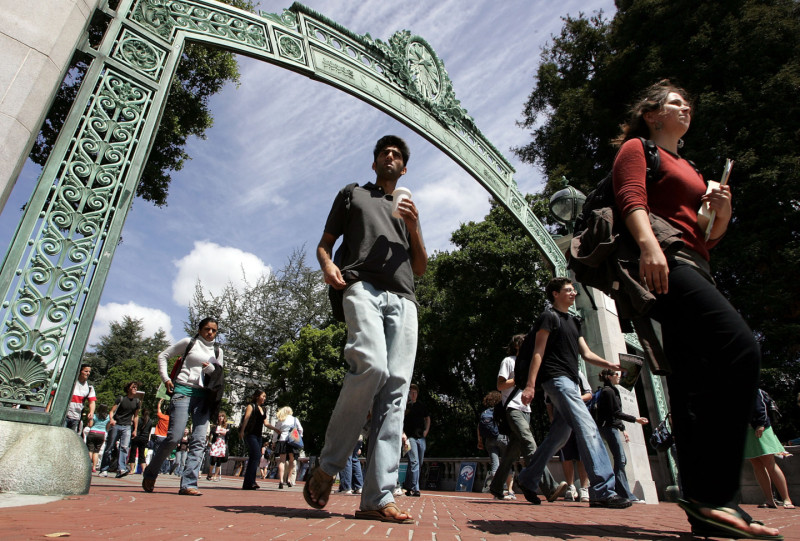TINTOCALIS: Exactly. So I think when we take a look at the Master Plan. Many people say it's just completely outdated and it really needs to catch up with the times.
MYROW: Jerry Brown, whose father, Pat Brown, helped form the plan more than 50 years ago, appears to be one of the big forces behind this effort. He spoke at the UC regents meeting.
BROWN: It is expensive, and you only have so much money. And so, unless we're just going to engender perpetual and deepening discontent, I think we need a fresher and more imaginative look at how we might equip our citizens and our noncitizens to live better lives.
MYROW: So those are the marching orders the governor is giving education leaders, but what kind of specifics is he asking for?
TINTOCALIS: You know, he himself says he has more questions than answers, but I think he's challenging the UC Board of Regents to think outside of the box. Again, the Master Plan and the way higher education is set up is that you have community colleges, CSU and UC. And he's telling them: Let's blow up this three-tiered system and really think about online education. Maybe we should expand that out a lot more at the UC so we're bringing in a lot more students. Let’s figure out a way for community colleges to offer bachelor's degrees. So these are some of the more radical ideas because when it comes to UC we really see this as this prestigious system that only a certain select amount of students can get into. He's kind of saying no, let's try to figure out a way to accommodate all these students because applications are soaring and there's not enough space.
MYROW: A couple other principles that the education leaders brought out when they were talking about this: One, that the system should serve students better than it does now, and two, that we should look at revamping the transfer process. It's been a hallmark of this system that if you do well in the community college system, you can transfer to a CSU or a UC.
TINTOCALIS: This is something that all three leaders are now really putting this as a top priority, this idea of streamlining the transfer process. The big problem is there's no coherent place of information for them. So what they're looking to do is launch this initiative beginning with the creation of what they call the student-centered Web portal. It sounds very technical, but it's kind of like this Facebook-style Web page tailored to a student's particular case. They will get reminders of the classes that are open, and it will provide more information. So it's a much more transparent way of figuring out your next move in the system.
MYROW: The budget was also big news at the UC regents meeting. Governor Brown is offering more money in his budget plan this year, but it's not enough to make up for years of budget cuts.
TINTOCALIS: That's absolutely correct, and all the UC regents will point that out. In black and white, the governor is proposing an additional $142 million, but that's the base budget. That's a 5 percent increase, but the UC budget overall will remain flat because there's mandatory spending and pension costs are really out of control right now. That said, the UC will probably see its third straight year of no tuition increases, which is great news for students. The Legislative Analyst's Office says revenues could rise by a few billion more come the May revision. So regents are trying to figure out what might we be able to do with some extra funding. I think a big issue, though, as I mentioned, is the pension. The retirement pension for college administrators and faculty and everyone else -- the obligations could very much sink the system.
MYROW: It sounds like that's going to be a politically contentious issue for UC administrators to deal with this year. I thought it was interesting that Napolitano herself is saying, ‘Look, I'm going to hold the line budgetwise with my very own office.’
TINTOCALIS: She's looking to lead by example by cutting back on her own spending in her own office. So what she's declaring is that there will be an immediate cap on her office staffing, so no more hires unless she says so, and travel expenses would be reduced as well. So these are not ground-shaking cuts, but again, a message to everyone that they're trying to tighten their belt, too.
